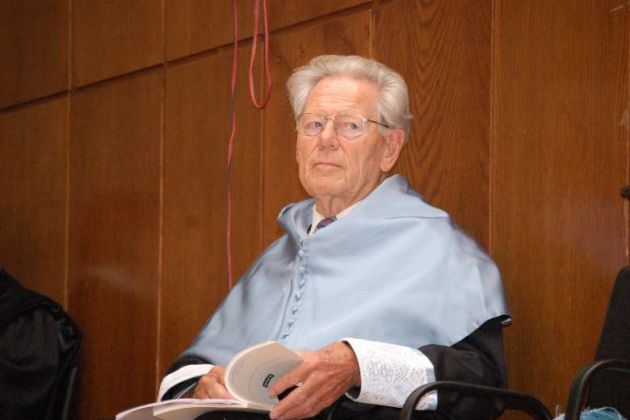Swiss Catholic theologian Hans Küng, who criticized popes, dies at 93

Hans Küng, the prominent and sometimes controversial Swiss Catholic theologian, who challenged popes, has died peacefully in his sleep in the university town of Tübingen, Germany, where he had lived and lectured since 1960.
His death at the age of 93 was announced by the Global Ethic Foundation which Küng founded in 1995.
"Father Küng was one of the most outspoken Roman Catholic theologians and one of the sharpest critics of St. John Paul II and Pope Benedict XVI. He had worked with and studied with Pope Benedict, then-Father Joseph Ratzinger, in Tübingen in the 1960s," Anli Serfontien reported for CNS on April 6.
Dr. Küng was an ordained priest who worked primarily as a scholar and writer, and was regarded by admirers and detractors alike as one of the most important Catholic thinkers of the past century, The Washington Post's Matt Schudel reported.
"One of his early books, first published in English as 'The Council and Reunion,' helped provide the intellectual framework for some of the reforms instituted at the Second Vatican Council (sometimes called Vatican II) under Pope John XXIII."
Along with Ratzinger, Küng was one of the youngest theological experts advising bishops at the Second Vatican Council from 962-65, but not long after the council he evoked controversy with his views on papal infallibility.
Due to this view he had his "missio canonica," the license needed to teach Roman Catholic theology, withdrawn in 1979 and was no longer allowed to teach as a Catholic theologian at Catholic universities.
Thereafter he went to Tübingen, where became professor of ecumenical theology, until his retirement in 1996.
Küng remained a Catholic priest and he cultivated a global reputation as an articulate critic, fluent in six languages, of what he considered the church's failure to adapt to modern times.
"During a 1963 speaking tour of the United States, he was invited to the White House by President John F. Kennedy, the nation's first Catholic president, but he was banned from appearing at Catholic University in Washington," the Post reported.
"It wasn't Catholicism that he opposed, Dr. Küng said, but Roman Catholicism — namely, what he viewed as an insular, self-reinforcing Vatican bureaucracy that amounted to an authoritarian regime. For centuries, he said, the Vatican had neglected its spiritual mission as it pursued the accumulation of power and wealth, with the Pope reigning as an absolute monarch."
In 2019, on the 40th anniversary of having his "mission canonica" withdrawn, Küng told KNA, the German Catholic news agency, that after an exchange of letters with Pope Francis he saw himself as "quasi-informally" rehabilitated ecclesiastically.
He spoke about a "handwritten, fraternal letter" and insisted that a public rehabilitation by the church was "not so important" to him. What matters, he said, is that things move forward for the people and for the church.
The Vatican's Pontifical Academicy for Life tweeted: "Disappears a great figure in the theology of the last century, whose ideas and analyzes must always make us reflect on the Catholic Church, the Churches, the society, the culture."